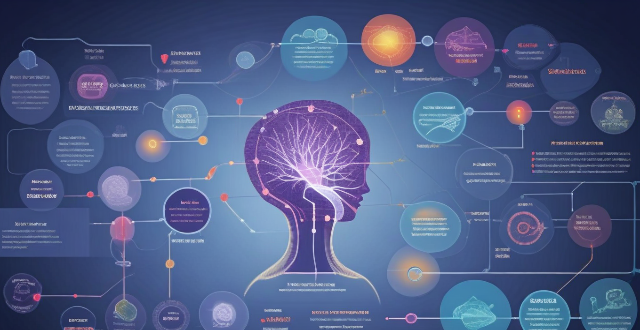Disorder Depression

What are the most common mental health issues faced by women ?
Women can experience a range of mental health issues throughout their lives, with some conditions being more commonly reported among them. These include depression, anxiety disorders, eating disorders, posttraumatic stress disorder (PTSD), perinatal depression and anxiety, premenstrual dysphoric disorder (PMDD), and borderline personality disorder (BPD). The prevalence and presentation of these issues can be influenced by cultural, societal, and biological factors, as well as access to care and societal stigma.

How does engaging in sports impact the likelihood of developing a gaming disorder ?
Engaging in sports can significantly reduce the likelihood of developing a gaming disorder by improving mood and mental health, enhancing sleep quality, increasing socialization, promoting peer pressure and influence, limiting availability for gaming, and fostering a goal-oriented mindset. Maintaining a balanced lifestyle with various activities beyond gaming is essential for overall well-being and preventing potential addictions.

Can climate change exacerbate mental health issues such as depression and anxiety ?
Climate change can exacerbate mental health issues such as depression and anxiety through various pathways, including extreme weather events, displacement and loss of home, food insecurity, and economic stress. It is crucial for policymakers and healthcare professionals to recognize the connection between climate change and mental health and implement strategies to mitigate the adverse effects of climate change on mental well-being.

Is there a link between exercise and reduced risk of depression ?
**Link Between Exercise and Reduced Risk of Depression: A Comprehensive Overview** Depression is a prevalent mental disorder that affects millions globally. While its exact cause remains unclear, various factors, including lifestyle choices like exercise, have been studied for their potential to reduce the risk. This article delves into the evidence supporting the link between exercise and reduced risk of depression, exploring studies on animals and humans, potential mechanisms underlying this relationship, and practical tips for incorporating exercise into one's routine. **Studies on Animals:** Research has shown that regular exercise in rats can increase BDNF levels, a protein linked to the development and treatment of depression. This suggests that exercise may help reduce depression risk by boosting BDNF levels. **Studies on Humans:** Numerous studies have investigated the human connection between exercise and depression. A meta-analysis found exercise significantly reduces depressive symptoms compared to no treatment or placebo interventions. Another longitudinal study showed that regular physical activity lowers the likelihood of developing depression compared to sedentary behavior. **Potential Mechanisms:** Several mechanisms could explain how exercise reduces depression risk: * **Neurobiological Changes:** Exercise increases BDNF levels, promoting neuronal growth and improving mood. It also alters neurotransmitter levels involved in mood regulation. * **Endocrine Response:** Exercise stimulates endorphin release, producing pleasure and reducing pain perception, contributing to improved mood. * **Psychosocial Benefits:** Regular physical activity provides social interaction opportunities, enhancing mental health. It also improves self-esteem and body image. * **Stress Reduction:** Exercise reduces stress by decreasing cortisol secretion and promoting relaxation, which helps prevent depression since stress is a known risk factor. **Practical Tips:** To reduce your depression risk through exercise, start slowly with low-intensity activities, find enjoyable exercises, set realistic goals, make it social, and monitor your progress. In conclusion, ample evidence supports a link between exercise and reduced risk of depression. Both animal and human studies demonstrate the mood-enhancing effects of regular physical activity. By understanding the potential mechanisms and incorporating exercise into your routine, you can potentially lower your risk of developing depression and improve your overall well-being.

Can regular physical activity prevent depression ?
Regular physical activity can reduce depression risk by releasing endorphins, improving sleep, and boosting self-esteem. Start with 30 minutes daily of activities like walking or swimming, and consider joining a fitness class for motivation. Gradually increase intensity and listen to your body to avoid overexertion.

Can counseling help women overcome postpartum depression ?
Postpartum depression is a serious mental health condition that affects new mothers after childbirth. Symptoms include sadness, anxiety, and exhaustion, making it difficult for women to care for their babies or themselves. Counseling has been shown to be an effective treatment option for PPD. It provides a safe space to express emotions, identifies triggers, builds coping skills, enhances self-care, improves relationships, and supports medication management. If you or someone you know is experiencing symptoms of postpartum depression, consider seeking professional counseling to get the support and guidance needed to overcome this challenging condition.

Can exercise be a substitute for psychotherapy in treating mild depression ?
This article explores the potential of exercise as a treatment for mild depression and its possible limitations. While exercise can boost mood, reduce stress, improve sleep quality, and enhance self-esteem, it may not address the cognitive aspects of depression or be suitable for everyone. Therefore, it should not be considered a complete substitute for psychotherapy in all cases.

How much exercise is needed to reduce anxiety and depression symptoms ?
Exercise has been shown to reduce anxiety and depression symptoms, with moderate-intensity aerobic exercise for at least 150 minutes per week being effective. However, individual factors such as age, gender, health condition, and lifestyle can affect the amount of exercise needed. It is important to choose enjoyable and sustainable activities for long-term use, and seek professional help if struggling with mental health issues.

How can parents recognize and respond to signs of postpartum depression ?
Recognizing Signs of Postpartum Depression (PPD) is crucial for new mothers to seek help if needed. Common signs include persistent sadness, difficulty bonding with the baby, changes in appetite or sleep patterns, irritability, withdrawal from social activities, and thoughts of harming oneself or the baby. If you notice any of these symptoms, take action by talking to your doctor, seeking support from loved ones, joining a support group, taking care of yourself, and considering professional help. Remember, seeking help is not a sign of weakness; PPD is a real medical condition that requires attention and treatment.

What are the effects of pregnancy and motherhood on women's mental health ?
The article discusses the impact of pregnancy and motherhood on women's mental health, highlighting both positive and negative effects. Positive effects include increased responsibility, improved social support, and enhanced emotional connection with the child. Negative effects may involve postpartum depression, anxiety disorders, and trauma-related disorders. Coping strategies such as seeking professional help, building a support network, and practicing self-care are recommended to manage any mental health challenges that arise during this period.

Can exercise reverse cognitive impairment caused by neurological disorders ?
Exercise may help reverse cognitive impairment caused by neurological disorders. Studies have shown that exercise can improve cognitive function in people with Alzheimer's disease, Parkinson's disease, and stroke. Exercise may also reduce inflammation, improve balance and mobility, and increase overall quality of life for people with neurological disorders. More research is needed to fully understand the effects of exercise on cognitive impairment caused by neurological disorders.

How does environmental stress from climate change influence mental health disorders such as anxiety and depression ?
Climate change is a global issue that not only affects the environment but also has significant implications for human health, including mental health. Environmental stress from climate change can exacerbate existing mental health disorders such as anxiety and depression or even trigger new ones. One of the most direct ways in which climate change impacts mental health is through increased exposure to natural disasters such as hurricanes, floods, wildfires, and heatwaves. These events can cause traumatic experiences, loss of homes and communities, displacement, and financial hardship, all of which are risk factors for developing mental health disorders like anxiety and depression. Climate change affects ecosystem services, such as air and water quality, food production, and outdoor recreational opportunities, all of which have been linked to mental well-being. The socioeconomic impacts of climate change, such as job loss in industries affected by climate policies or extreme weather events, can lead to financial insecurity and social disruptions that exacerbate mental health conditions. Anticipatory anxiety about the potential consequences of climate change can also contribute to chronic stress and exacerbate anxiety and depressive symptoms. Coping mechanisms and building resilience are essential for managing the psychological impacts of environmental stress.

What are the effects of domestic violence on women's mental health ?
Domestic violence has severe and long-lasting impacts on women's mental health, including depression, anxiety, post-traumatic stress disorder (PTSD), and substance abuse. It is crucial for healthcare providers to screen for signs of domestic violence and provide appropriate support services for affected women.

What are the best ways to manage anxiety and depression in women ?
The text discusses several strategies for managing anxiety and depression in women, emphasizing the importance of seeking professional help, practicing self-care, building a support network, making lifestyle changes, and considering medication. It highlights different types of therapy and medical professionals to consult, as well as various self-care practices like exercise, mindfulness meditation, and journaling. The article also touches on the significance of social connections and time management in managing mental health. Finally, it provides information on antidepressants and stress reduction techniques, advising readers to work closely with healthcare professionals to find the best approach for their needs.

Can hormone imbalances contribute to mental health problems in women ?
Hormonal imbalances can contribute to mental health problems in women by disrupting mood, emotions, and cognitive processes. Common issues related to hormonal imbalances include premenstrual dysphoric disorder, postpartum depression, and mood changes during perimenopause and menopause. Treatment options may include hormone therapy, antidepressants, and lifestyle changes.

Is it true that working out can improve your mood ?
Working out can improve your mood by releasing endorphins, boosting self-esteem, improving sleep quality, providing social interaction, and reducing symptoms of depression.

What are the potential health risks associated with global warming ?
Global warming, caused by human activities, poses various health risks including heat-related illnesses like heatstroke and dehydration, spread of diseases such as malaria and Lyme disease, respiratory problems including asthma and allergies, and mental health issues like anxiety, depression, and PTSD. It is crucial to take measures to mitigate these effects and safeguard public health.

How can sport psychology counseling help with mental health issues such as anxiety and depression in athletes ?
Sport psychology counseling is a valuable resource for athletes dealing with mental health issues such as anxiety and depression. It involves understanding the problem, setting goals, managing stress, building confidence, developing emotional intelligence, and fostering social support. Tailored approaches, consistency, and patience are key to achieving long-term success in improving both mental well-being and performance.

What are the current global health challenges ?
The world is facing a multitude of health challenges that require immediate attention and action, including infectious diseases, non-communicable diseases, mental health issues, and environmental health hazards. Infectious diseases such as COVID-19, HIV/AIDS, tuberculosis, and malaria continue to be a major threat to global health. Non-communicable diseases like cardiovascular diseases, cancer, diabetes, and chronic respiratory diseases are becoming increasingly prevalent globally. Mental health disorders, including depression, anxiety disorders, and substance abuse, are a growing concern worldwide. Environmental factors such as air pollution, water pollution, climate change, and natural disasters also pose significant risks to human health.

What are the potential long-term effects of sports injuries on adolescent development ?
Sports injuries can have a significant impact on the physical, mental, and social development of adolescents. Potential long-term effects include chronic pain, limited mobility, disfigurement, anxiety, depression, low self-esteem, PTSD, isolation, bullying, and relationship difficulties. Proper treatment and rehabilitation are crucial for minimizing these effects.

How does extreme weather impact mental health ?
This comprehensive analysis discusses the impact of extreme weather events on mental health, highlighting immediate emotional responses, trauma, stress, long-term effects like PTSD and depression, community impact, and intervention strategies. It emphasizes the need for early intervention, community support, accessible resources, and resilience building to address these challenges effectively.

In what ways do extreme weather events influence human behavior and psychological well-being ?
Extreme weather events, such as hurricanes, floods, heatwaves, and droughts, have significant impacts on human behavior and psychological well-being. These effects can be seen in various aspects of life, including physical health, mental health, social interactions, and economic stability. The physical health impacts include increased risk of injury or death, exacerbation of chronic conditions, and spread of disease. The mental health impacts include acute stress reaction, post-traumatic stress disorder (PTSD), grief and loss. The social interactions impacts include community cohesion and disruption of social networks. The economic stability impacts include financial strain and job loss and unemployment. In conclusion, extreme weather events have far-reaching impacts on human behavior and psychological well-being that extend beyond the initial incident itself. Addressing these challenges requires comprehensive strategies that consider both short-term relief efforts and long-term resilience building measures aimed at enhancing individual, community, and societal adaptive capacities.

How does climate change impact mental health ?
Climate change has a multifaceted impact on mental health, including direct effects such as trauma from extreme weather events and environmental degradation, and indirect effects like economic strain and social disruption. Mitigating this impact involves raising awareness, strengthening community resilience, investing in mental health services, advocating for policies that address both climate change and public health concerns, and encouraging sustainable practices.